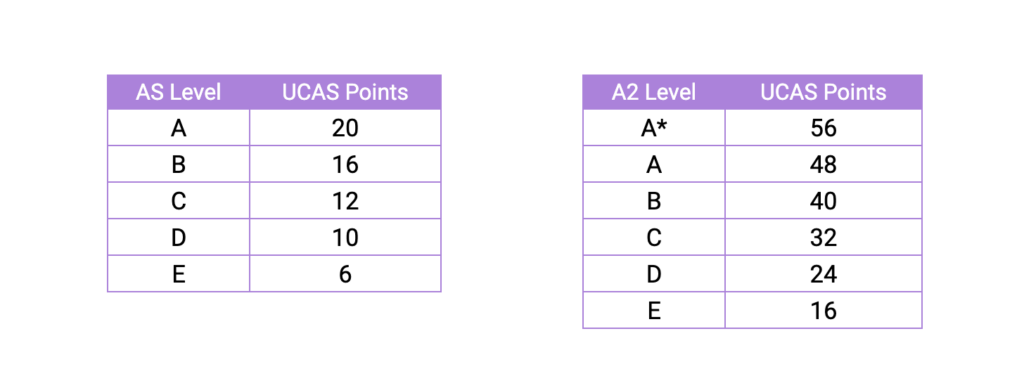When it comes to pursuing higher education in the United Kingdom, the UCAS system plays a pivotal role. UCAS, an acronym for the Universities and Colleges Admissions Service, is an independent organisation that facilitates the application process for undergraduate courses at universities and colleges across the UK.
A key aspect of this system is the concept of UCAS points, which are used to measure a student’s academic achievements. Every grade you receive in your A-levels (and other qualifications) has a number of UCAS points attached to it, these combined give you your UCAS points score.
What is UCAS?
UCAS acts as a central hub connecting aspiring students with universities and colleges in the UK. It simplifies the application process by enabling students to submit a single application for multiple Universities in one go. UCAS collects and processes applications, verifies qualifications, and helps Universities make informed decisions on admissions.
Understanding UCAS Points
UCAS points provide a standardised way of measuring a student’s academic achievements and qualifications. Different qualifications and grades are assigned specific UCAS point values, enabling universities and colleges to compare applicants fairly and consistently. UCAS points are mainly used for undergraduate courses, and the total number of points achieved determines eligibility for various programs.
How are UCAS Points Achieved?
UCAS points can be earned through a variety of qualifications, such as A-levels, Scottish Highers, BTECs, and International Baccalaureate (IB) certificates, among others. Each qualification has a specific point value assigned to different grades or levels of achievement. For example, an A* at A-level is worth 56 UCAS points, while a Pass in a BTEC Diploma is worth 48 UCAS points.
Here’s a breakdown on UCAS points for each A-level grade:

To calculate your total UCAS points, you need to determine the point value for each of your qualifications and add them together. UCAS provides a handy points calculator on their website, which allows you to input your qualifications and grades to obtain your total UCAS points.
What If You Don’t Achieve Enough UCAS Points?
If you find yourself with fewer UCAS points than required for your desired course, all is not lost. Here are some alternative options to consider:
- Clearing: UCAS operates a process called Clearing, which helps students find available course vacancies at universities and colleges. During Clearing, institutions advertise any remaining spots, and eligible students can apply for them.
- Foundation Courses: Some universities offer foundation or access courses designed to prepare students for degree-level study. These programs typically have lower entry requirements and can serve as a pathway to your desired course.
- Gap Year: Taking a gap year can provide an opportunity to gain more UCAS points or enhance your skills and experiences through volunteering, internships, or travel. This can strengthen your application for the following year.
- Alternative Qualifications: Investigate alternative qualifications or vocational courses that may be accepted by universities and colleges. These options can provide a different path to your desired career.
- Clear Career Path: If your desired career doesn’t require a specific degree or higher education, explore alternative routes such as apprenticeships, vocational training, or entrepreneurship. These paths can offer valuable hands-on experience and qualifications, which employees may consider over A-level qualifications.
UCAS points play a crucial role in the UK higher education system, providing a standardised measure for academic achievements. By understanding the concept of UCAS points, how they are earned, and the available alternatives if you fall short of the required points, you can make informed decisions about your educational journey. Remember that UCAS points are just one aspect of your overall potential, and there are various paths to success and fulfilment.
